When it comes to caring for a Siberian Husky, its important to provide a high-quality diet. What is the best dog food for a Siberian Husky? High-protein, grain-free options are typically recommended to meet their unique nutritional needs.
| Age Appropriateness | Puppy formulas for huskies under 12-18 months, adult formulas thereafter |
| Caloric Content | Around 860 to 1,290 calories per day for adult huskies, depending on activity level |
| Protein Content | At least 22% for adults and 26%-28% for puppies, as per AAFCO recommendations |
| Fat Content | Approximately 8%-14% for adult dogs, higher for puppies |
| Common Allergies | Grains, beef, chicken, and dairy are possible allergens |
| Necessary Nutrients | A balanced diet with protein, fat, carbohydrates, vitamins, and minerals |
| Ingredient Quality | Whole meats or meat meals as primary ingredients; avoid by-products and fillers |
| Feeding Frequency | 2-3 times a day for adults, 3-4 times for puppies to manage energy levels |
| Kibble Size | Medium to large-sized kibble to cater to the huskys mouth structure |
| Special Diets | Some huskies may benefit from grain-free, limited ingredient, or hypoallergenic diets |
A Siberian Husky’s diet should prioritize high-quality protein sources to support their muscular development and maintenance. Protein plays a crucial role in building and repairing muscle tissues, making it essential for the overall health and strength of a Husky.
To ensure that your Siberian Husky is getting the best nutrition possible, focus on premium protein sources such as real meat, fish, and poultry. These ingredients provide the necessary amino acids that contribute to muscle growth and sustained strength.
When considering the best dog food for a Siberian Husky, prioritize products that list real, identifiable protein sources, such as chicken, turkey, beef, or fish, as the primary ingredients. These high-quality protein sources will help your Husky maintain optimal muscle health and overall well-being.
What is the best dog food for a siberian husky
By incorporating premium protein sources into a Siberian Husky’s diet, you can effectively support their muscle development and maintenance.
Real meat, fish, and poultry provide essential amino acids necessary for muscle growth and sustained strength. When selecting dog food for a Siberian Husky, prioritize products that list real, identifiable protein sources as the primary ingredients, such as chicken, turkey, beef, or fish.
These high-quality proteins contribute to maintaining your Husky’s optimal muscle health and overall well-being.
To delve deeper into the care of your Husky beyond diet, explore how seasonal changes affect their coat. Gain insights on the differences between their winter and summer coats by reading Husky Seasonal Coat Variations.
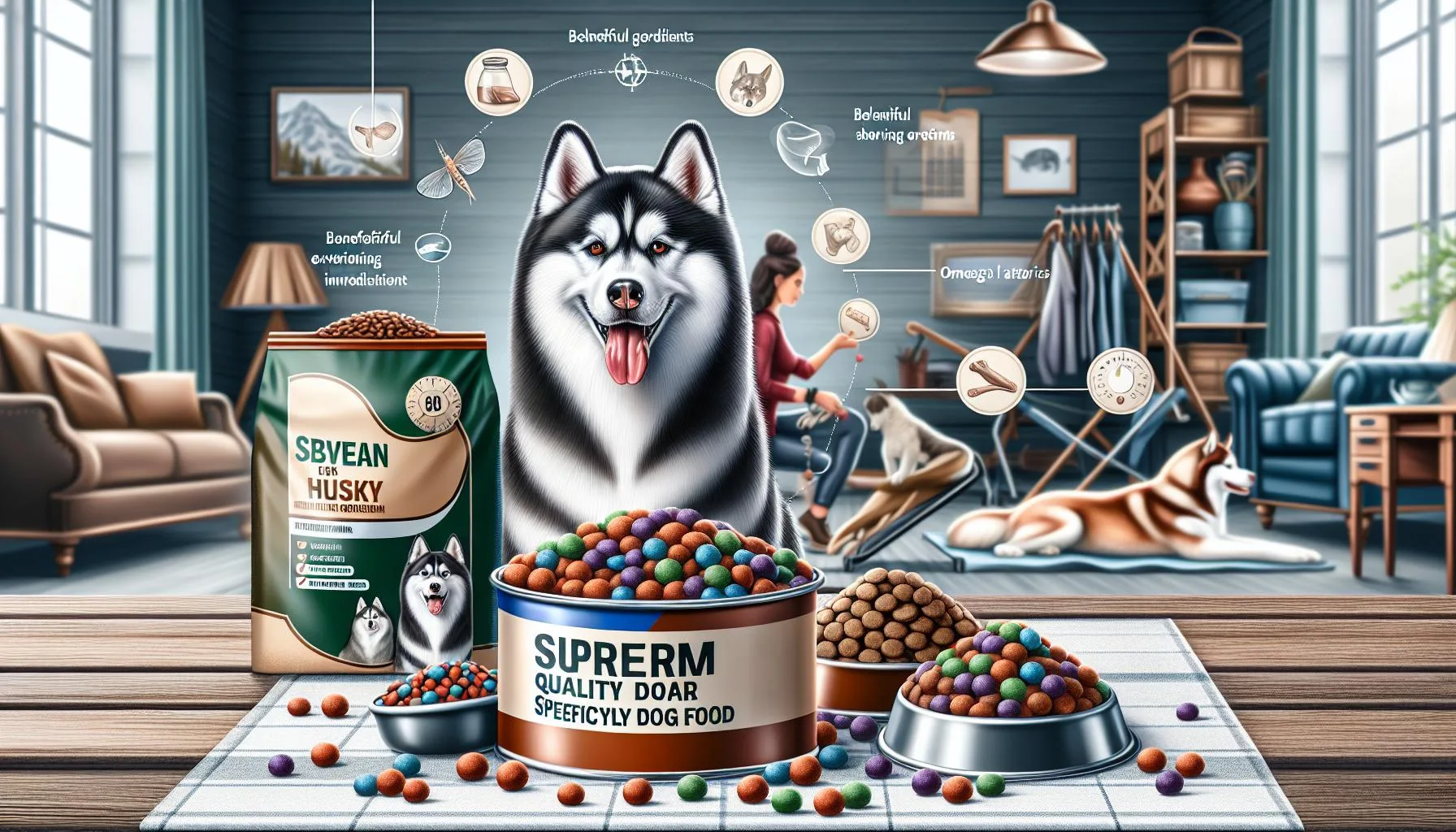
Grain-Free Diets and Siberian Huskies
Grain-free diets can be highly beneficial for Siberian Huskies, as they align more closely with their ancestral eating patterns. These diets are typically free from common grains such as wheat, corn, and soy, which are known allergens for some dogs.
By avoiding these grain-related allergies, Huskies can experience improved digestive health and overall well-being.
What is the best dog food for a siberian husky
Additionally, grain-free diets emphasize higher protein content, which is essential for the muscular build and high energy levels of Huskies. This higher protein content supports their active lifestyle, providing them with the necessary energy to thrive.
Furthermore, grain-free diets often incorporate alternative carbohydrate sources such as sweet potatoes, peas, and lentils, which offer valuable nutrients and fiber to support a Husky’s high metabolic rate.
To explore the diversity within the breed and understand how dietary needs may vary among different Huskies, continue reading our in-depth article, "Unveiling the Varieties of Siberian Huskies." This resource provides a comprehensive look into the unique characteristics and heritage of Husky varieties, further informing your decisions about their nutrition and care.
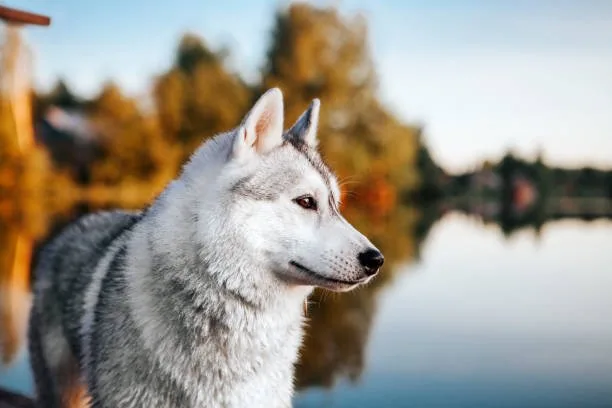
Balancing Fats: Omega-3 and Omega-6
Siberian Huskies require a balanced ratio of omega-3 and omega-6 fatty acids in their diet to maintain optimal skin and coat health. Both omega-3 and omega-6 are essential fatty acids that play crucial roles in the overall well-being of Huskies.
Omega-3 fatty acids, commonly found in fish oil, help to reduce inflammation, support immune function, and contribute to a lustrous coat. On the other hand, omega-6 fatty acids, often sourced from plant-based oils, aid in skin health and act as a natural moisturizer for the skin and coat.
What is the best dog food for a siberian husky
When considering the best dog food for a Siberian Husky, it is important to look for options that contain a balanced combination of omega-3 and omega-6 fatty acids.
Premium dog food brands often incorporate fish oil or flaxseed to provide these essential fatty acids. Additionally, supplements such as fish oil capsules can be added to a Husky’s diet under the guidance of a veterinarian to ensure the optimal balance of omega-3 and omega-6 fatty acids.
Maintaining a healthy balance between omega-3 and omega-6 fatty acids is crucial for the skin and coat vitality of your Siberian Husky. Dive deeper into the care and well-being of these magnificent dogs with our comprehensive guide on their heat cycles, titled "Understanding the Heat Cycle of Siberian Huskies."
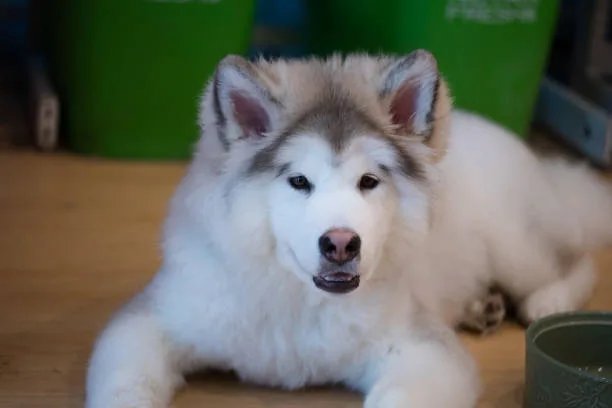
The Role of Carbohydrates in a Husky's Diet
Siberian Huskies, known for their high energy levels and active lifestyle, require a diet that can support their robust metabolic rate and provide them with the necessary energy. Carbohydrates play a crucial role in meeting these needs, serving as a primary source of fuel for the Husky’s daily activities.
The best dog food for a Siberian Husky should contain complex carbohydrates such as sweet potatoes, peas, and whole grains. These slow-releasing energy sources help maintain the Husky’s stamina throughout the day, supporting their active nature and muscular build.
When considering the appropriate amounts of carbohydrates, Husky owners should look for dog food formulas that provide a balanced proportion of carbohydrates to ensure sustained energy levels without causing unnecessary weight gain.
Specifically, a high-quality diet for a Siberian Husky should contain a moderate amount of carbohydrates to ensure optimal energy while avoiding excessive sugar and fillers that may lead to fluctuations in the Husky’s energy levels.
In conclusion, the best dog food for a Siberian Husky must incorporate the right types and proportions of carbohydrates to fuel their energetic lifestyle and fast metabolism. By including complex carbohydrates in their diet, Husky owners can ensure that their furry companions have the sustained energy they need to thrive.
To ensure your Husky maintains the perfect balance of energy and health, it's crucial to tailor their carbohydrate intake. Dive deeper into the dietary needs of these energetic breeds by exploring our comprehensive guide on Siberian Huskies and their optimal nourishment routines.
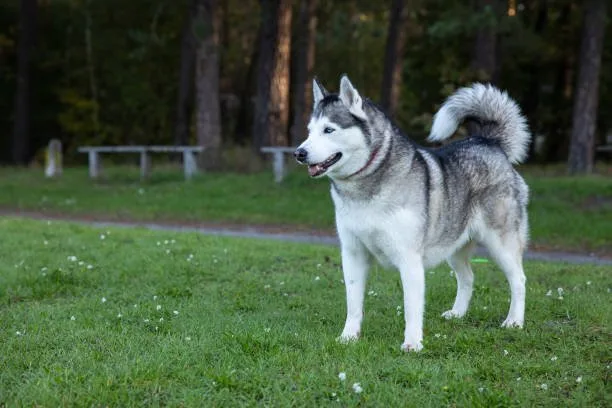
Vitamins and Minerals Essentials
When it comes to the best dog food for a Siberian Husky, it’s crucial to pay attention to the vitamins and minerals essential for their well-being. A well-rounded diet for a Husky should include a range of important vitamins and minerals to support their overall health.
Key vitamins to look for in dog food include vitamin A, which promotes good vision and a healthy immune system, and vitamin E, an antioxidant that supports skin and coat health. Additionally, vitamin D is important for calcium absorption and bone health.
Minerals such as calcium and phosphorus are vital for strong bones and teeth, while zinc supports a healthy immune system and proper wound healing.
An adequate amount of omega-3 fatty acids, commonly found in fish oil, is important for Huskies to maintain a healthy coat and skin. Look for dog foods with added sources of these essential vitamins and minerals to ensure that your Siberian Husky gets the balanced nutrition they need to thrive.
Understanding the blend of vitamins and minerals crucial for a Husky's diet lays the foundation for overall health, which complements other aspects of their well-being such as maintaining an ideal weight. Discover the nuances of dietary balance and physical health by exploring our detailed guide on the average weight of female Huskies.

Identifying High-Quality Commercial Dog Foods
When considering what is the best dog food for a Siberian Husky, it’s crucial to identify high-quality commercial options. Look for well-established brands known for their commitment to using premium ingredients and adhering to strict quality standards.
Checking the ingredient list is essential, as high-quality dog foods should feature real meat as the primary ingredient, preferably specifically identified meat meals like chicken meal or lamb meal, which concentrate the protein content. Additionally, wholesome grains and vegetables provide essential nutrients, so ensure these are included without fillers or artificial additives.
American Kennel Club: What is the best dog food for a siberian husky
Brand reputation plays a significant role in selecting the right dog food for your Siberian Husky.
Established brands with a history of producing high-quality products and conducting thorough research and testing are more likely to provide nutritional guarantees. These guarantees assure that the dog food meets the required nutritional levels for your Husky, ensuring a balanced diet.
To ensure your furry friends are both well-fed and well-groomed, it's vital to address all aspects of their care. Dive deeper into your pet's hygiene regimen with our comprehensive guide on the appropriate timing for puppy bathing.
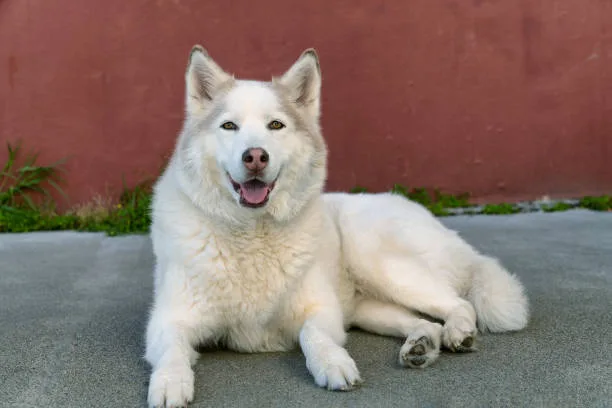
Raw and Homemade Diets: Are They Suitable for Siberian Huskies?
Feeding raw or homemade diets to Siberian Huskies can be a topic of debate among dog owners. The key to determining their suitability lies in understanding the specific dietary needs of this breed.
Raw diets primarily consist of uncooked meat, bones, and vegetables, mimicking the diet of their wild ancestors. While this approach offers high-quality protein and nutrient-rich ingredients, it requires careful balance to provide essential vitamins and minerals.
Homemade diets, on the other hand, allow owners to control ingredients and avoid fillers common in commercial dog foods. However, formulating a balanced diet that meets the Husky’s nutritional requirements can be challenging for inexperienced individuals.
What is the best dog food for a Siberian Husky ultimately depends on thorough research and consultation with a veterinarian to ensure they are receiving a complete and balanced diet.
Reddit What is the best dog food for a siberian husky
In summary, both raw and homemade diets can offer benefits in terms of quality ingredients and control over the food composition. However, they require careful planning to ensure they meet the specific nutritional needs of Siberian Huskies.
Consulting with a vet is essential to determine the suitability of these diets for your Husky and to formulate a well-rounded diet plan that supports their overall health and wellbeing.
For a deeper understanding of post-surgical care for your canine companions, exploring the timeframe for cone usage following neutering procedures is essential. Delve into our comprehensive guide, The Duration of Cone Use After Canine Neutering, to ensure your dog's swift and safe recovery.
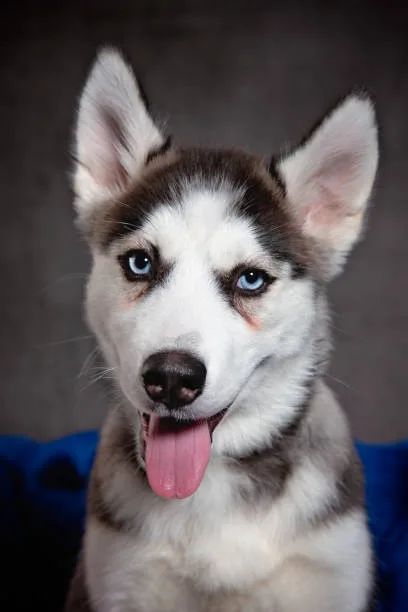
Reading Dog Food Labels: What to Look for
Reading dog food labels is an essential skill for Siberian Husky owners to ensure that they are choosing the best dog food for their pet. When it comes to deciphering these labels, it’s important to focus on the following key elements:
- Ingredient List: Look for high-quality protein sources such as chicken, beef, or fish as the primary ingredients.
Avoid dog foods with ambiguous meat by-products or fillers.
- Guaranteed Analysis: Pay attention to the percentages of protein, fat, and fiber to ensure that they align with the Siberian Husky’s dietary needs, which typically require high protein and moderate fat levels to support their active lifestyle.
- AAFCO Statement: Ensure that the dog food meets the nutritional standards set by the Association of American Feed Control Officials (AAFCO) for complete and balanced nutrition.
- Avoid Artificial Additives: Check for artificial colors, flavors, and preservatives, as Siberian Huskies may be sensitive to these additives, and they offer little to no nutritional value.
On Quora about: What is the best dog food for a siberian husky
Understanding these aspects of dog food labels can empower Siberian Husky owners to make informed decisions about their pet’s diet, ensuring that they are providing the best possible nutrition for their beloved companion.
Understanding dog food labels is just the beginning of optimizing your Siberian Husky's health and development. Discover the specific growth trajectory of these majestic canines by exploring our detailed article on Siberian Husky Growth Rates.
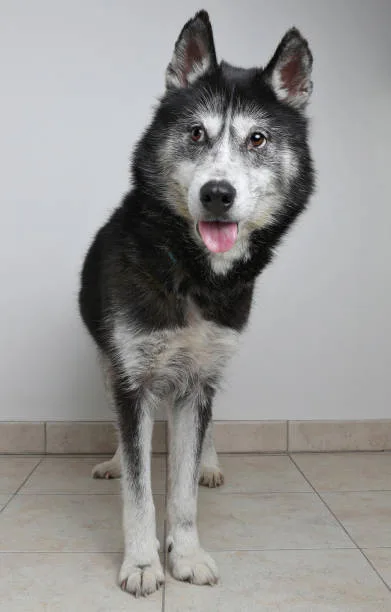
Regular Feeding Schedule and Portions for Huskies
Consistency is key when it comes to feeding Siberian Huskies. Establishing a regular feeding schedule helps regulate their metabolism and prevents overeating, which can lead to weight gain.
Portion control is equally important to ensure that Huskies maintain a healthy weight and receive the appropriate amount of nutrients. It’s crucial to measure out their food and not rely on guesswork, as individual Huskies have varying dietary needs.
Adjusting portion sizes based on their activity level and age is essential in keeping them healthy and at an ideal weight. What is the best dog food for a Siberian Husky? High-quality, breed-specific dog food that is formulated to meet the nutritional requirements of Huskies is recommended.
Feeding them at the same times each day and sticking to the correct portion sizes not only promotes a healthy weight but also establishes a routine that Huskies thrive on.
Discover the foundational elements of nurturing a well-balanced Husky from the very beginning. Learn more about the pivotal milestones in a puppy's development, such as the right time to introduce water, by exploring our detailed guide.

Customizing Nutrition: Age and Activity Level Considerations
Siberian Huskies’ nutritional requirements vary depending on their age and activity levels. For Husky puppies, it’s crucial to address specific growth-related dietary needs.
Their diet should consist of high-quality protein to support muscle development, and they need a balanced ratio of fats and carbohydrates to fuel their active lifestyle. As Huskies transition into adulthood and senior years, their caloric intake and nutrient balance need to be adjusted to suit their changing metabolism and energy levels.
Additionally, active Huskies, especially those utilized as sled dogs, require a higher calorie intake and an increased percentage of protein in their diet to sustain their stamina and endurance during demanding physical activities.
Understanding the nutritional needs of Siberian Huskies is essential for providing appropriate care at different stages of their lives. Husky puppies require specific dietary elements to support their growth and development.
It’s important to consider high-quality protein sources and balanced nutrient ratios to cater to their active nature.
- For adult and senior Huskies, adjustments in their caloric intake and nutrient balance are necessary to align with their changing energy requirements and metabolic rate.
- Active Huskies, especially those engaged in strenuous activities like sled pulling, necessitate diets with higher calorie content and increased protein percentage to fuel their energy and endurance.
.
To delve deeper into the world of canine health and nutrition, discover a wealth of expert-guided insights at the Centers for Disease Control and Prevention's Healthy Pets, Healthy People: Dogs section. Ensure your Husky's vitality and well-being with the comprehensive guidelines and tips provided by trusted health authorities.
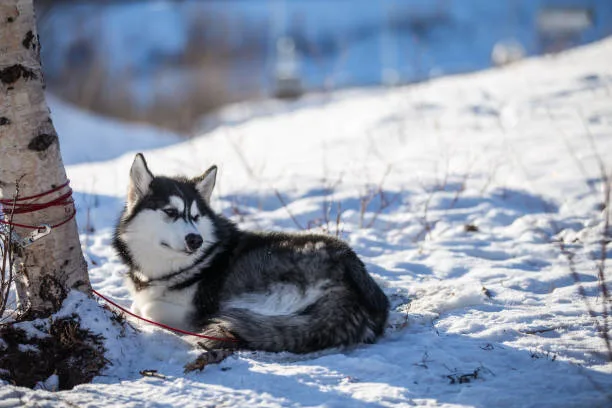
Specialized Diets for Husky Health and Performance
For Siberian Huskies, specialized diets play a crucial role in maintaining their health and performance. Premium dog food brands often provide formulas specifically tailored for large breeds like Huskies, taking into account their unique dietary needs.
These specialized diets focus on promoting joint health, addressing coat care, and sustaining high energy levels essential for the active lifestyle of Huskies. Additionally, meat-based diets are recommended for Huskies, and there are also husky-specific dog food brands available in the market, which are formulated to cater to the distinct requirements of this breed.
Moreover, the presence of healthy fats, such as fish oils, in these specialized diets is vital for upholding a Husky’s overall well-being.
These fats contribute to maintaining healthy skin and a lustrous coat, both of which are characteristic features of Siberian Huskies. By prioritizing specialized diets that encompass these specific elements, Husky owners can ensure that their pets receive the best possible nutrition to support their health and performance.
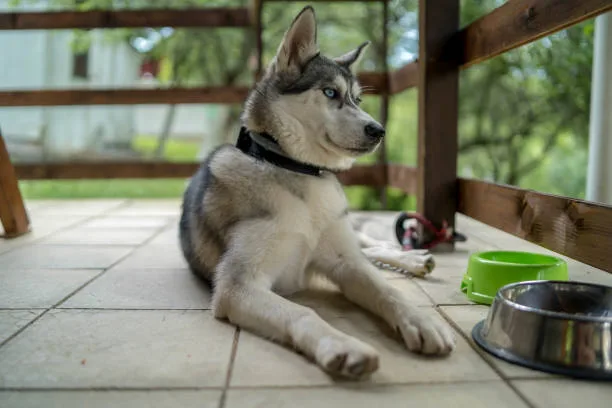
Allergies and Sensitivities: Tailoring Husky Diets
When it comes to a Siberian Husky facing allergies and sensitivities, it’s essential to tailor their diet to minimize adverse reactions and promote overall well-being. Opting for grain-free dog foods with natural ingredients can be beneficial in reducing allergic responses.
These options align more closely with a Husky’s ancestral eating patterns and can help alleviate sensitivities related to grain consumption. In addition, considering novel proteins and hypoallergenic formulas can aid in managing a Husky’s dietary needs, catering to their specific sensitivities without compromising essential nutrition.
These specialized formulations can be instrumental in addressing allergic reactions and promoting digestive health.
Furthermore, the inclusion of Omega-3 and Omega-6 fatty acids in a Husky’s diet plays a crucial role in addressing skin and coat issues, commonly associated with sensitivities. These essential fatty acids contribute to maintaining healthy skin and a lustrous coat, which is particularly important for Huskies with sensitivities.
Therefore, when exploring the best dog food for a Siberian Husky, it’s vital to prioritize options that incorporate these beneficial nutrients to support their overall health and well-being.
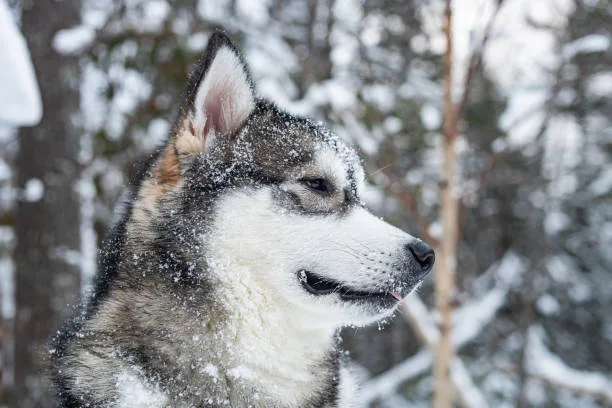
Portion Control and Feeding Routines for Optimal Health
Portion control and feeding schedules are crucial for maintaining the optimal health of your Siberian Husky. These aspects play a significant role in managing your husky’s weight and ensuring a balanced diet.
It’s essential to establish a consistent feeding routine that aligns with your husky’s energy needs and lifestyle. By providing appropriate portions of high-quality dog food, you can help your husky maintain a healthy weight and prevent overeating, which can lead to obesity.
When determining the right portion size for your husky, consider factors such as age, activity level, and metabolic rate.
Huskies are an active breed, so their caloric requirements may vary based on their daily exercise and energy expenditure. Consulting with a veterinarian can help you determine the ideal portion size that suits your husky’s individual needs.
In addition to managing portion sizes, incorporating Husky-approved dog treats into your husky’s diet can contribute to a balanced feeding routine.
These treats should complement their main dietary intake and should be provided in moderation to avoid excess calorie intake. Opt for treats that are specially formulated for huskies and are made from high-quality ingredients to support their overall health.
Establishing a feeding schedule that aligns with your husky’s lifestyle is also key.
Consistency in meal times helps regulate your husky’s metabolism and prevents erratic eating patterns. By adhering to a set feeding routine, you can better monitor your husky’s food intake and ensure they receive the necessary nutrients at the right times.
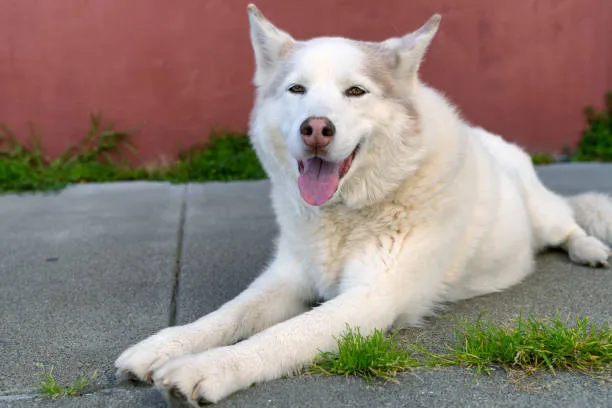
Supplements for Your Siberian Husky's Diet
Dietary supplements can play a crucial role in supporting the overall health and well-being of your Siberian Husky. As a responsible pet owner, you may wonder, “What is the best dog food for a Siberian Husky?” It’s important to remember that while high-quality dog food is the foundation of your Husky’s diet, supplements can address specific health concerns or nutritional gaps.
However, before incorporating any supplements into your Husky’s diet, it’s essential to seek personalized advice from a qualified veterinarian. They can assess your dog’s individual needs and provide tailored recommendations to ensure the supplements are safe and beneficial for your Siberian Husky.
When considering supplements for your Siberian Husky, keep in mind that certain health conditions or life stages may warrant additional support.
For example, joint supplements containing glucosamine and chondroitin can aid in maintaining your Husky’s mobility, especially as they age or if they engage in strenuous physical activities such as running or pulling. Similarly, omega-3 fatty acid supplements, derived from sources like fish oil, can contribute to a healthy coat and skin, particularly beneficial for Huskies prone to dry skin or coat issues.
In some cases, specific dietary supplements such as probiotics or digestive enzymes may assist in promoting gut health and nutrient absorption for your Siberian Husky.
These supplements can aid in maintaining a well-balanced digestive system, potentially reducing the risk of digestive issues and supporting overall vitality.
It’s important to note that while supplements can be advantageous, they should be viewed as complementary to a well-rounded, high-quality diet. What is the best dog food for a Siberian Husky should always be the primary consideration, with supplements serving as targeted support for your Husky’s individual requirements.
By consulting with a veterinarian, you can gain valuable insights into the most suitable supplements for your Siberian Husky, ensuring a holistic approach to their nutritional well-being.

Leave a Reply